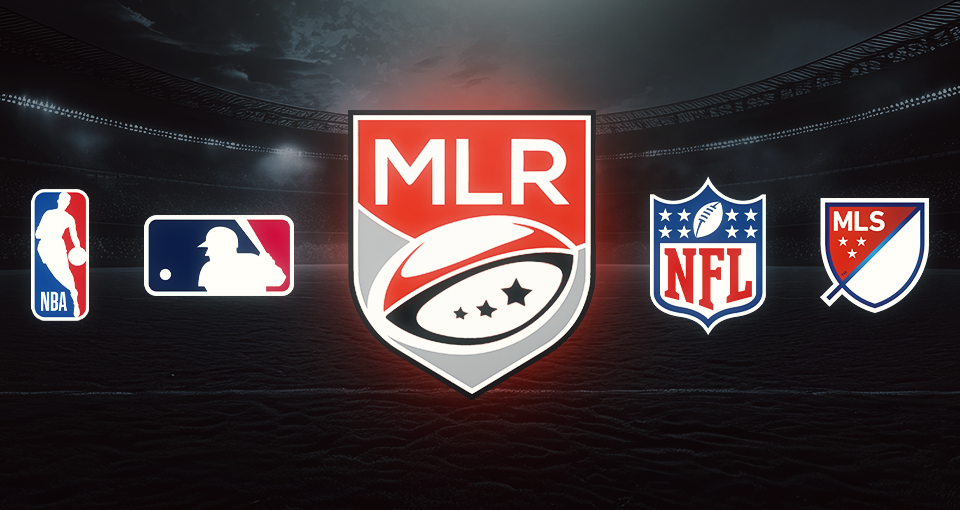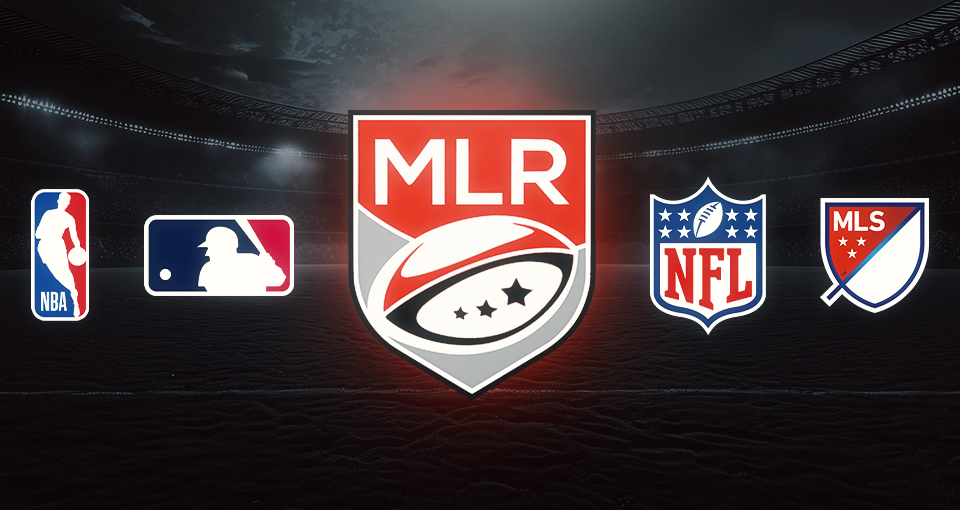



Imagine a sports league where you can high-five a player after the game, learn to toss the ball from pro-players themselves, and take your whole family to the match without breaking the bank, and every game feels like a community celebration. Major League Rugby (MLR) makes that dream a reality. The league has risen as an alternative to America’s high-cost, high-gloss sports culture. With affordable tickets and community building among players who feel like neighbors, MLR is redefining fans’ connection to sports.
Watch What’s Trending Now!
What does it take to build a major sports league from the ground up—and win over fans in a crowded, cutthroat market? In the next episode of the EssentiallySports–Think Tank podcast, airing Tuesday at 11:30 AM, host Trey Holder and co-host Kevin Smith—TCU sports marketing professor and principal at Leverage Sports LLC—dive into that very question with none other than Jericho Groenland, the dynamic VP of Marketing for Major League Rugby.
The trio explored the challenges facing new emerging leagues and how MLR’s accessibility and budget-friendly model, carried on the shoulders of its players’ presence, has carved a unique place in American fans’ hearts, which is often out of reach for an average fan.
The Challenge: Breaking through in an already occupied market
Jericho Groenland understands that the likes of the NFL, NBA, and MLB rule the American market. So, finding a place in the hearts of the fans, already swarmed with multiple sports, requires more than just providing them with action. Especially when you consider just how different and complex rugby is as compared to American football. “It is that delicate line of how do you Americanize and teach enough. But then have it not be where rugby purists and rugby experience get annoyed watching the broadcast,” she explains.
However, the MLR broadcast team has found a way to tackle this. By blending straightforward play-by-play action with insightful color commentary, they can make the sport interesting for novices and keep the hardcore fans hooked. Despite these efforts, sometimes this education gap becomes a real hurdle.
Our Co-host Smith points out that. The confusion that many face while watching a new sport and the surrounding complexities. “How do we know where to go? I didn’t know the difference between the three codes set watching them in Australia,” he asked. The MLR marketing head acknowledged the challenge, revealing that even her 73-year-old mother, a new rugby fan because of the Olympics Sevens, struggled with the same. “I was like, ‘Mom, that’s Sevens. Sevens is a little bit different than Union,” Groenland chuckled.
To close that gap, MLR has launched its own Rugby Network. A separate digital space filled with MLR matches, an international league like the Gallagher Premiership, collegiate rugby, and even rugby’s educational content. Sort of like the WWE Network but free. “We try to put out a ton of resources so you can always follow MLR,” she says, ensuring fans always have easy access to the league.
The Opportunity: How MLR Carved Its Winning Formula
Groenland believes that the league’s fan-first approach has set it apart from the competition. MLR believes in affordability, accessibility, and fan interaction. Something that is missing from American sports culture because of all the glamour. “It’s mind-blowing how accessible our players are and how responsive our players are to fans. Reaching out and asking questions and our teams, and it’s just kind of jumping out and going to see a match,” she stated.
Groenland also revealed that every MLR team hosts rugby sessions and community days. Where professional players teach fans how to toss or kick a rugby ball, and it is completely different from football. “Most of our teams will put on a community day. Where you can come out and the players will work with you to show you how to toss a rugby ball and how to kick a rugby ball, which is different than a football,” she revealed.
Furthermore, the Vice President hails the family-friendly nature of the league as a game-changer. In a world where even a single ticket to any sports league, MLR has come as the perfect alternative. Recalling her own experience, Groenland noted how attending some NFL or MLB games with her boyfriend and his two sons could easily top $1,000 before parking or concessions. Because of that, she actively avoids attending the games of certain teams, no matter how much she adores them. In contrast, “for 150 bucks you can get four tickets, beers, and hot dogs and have a great time at a rugby match”. This affordable nature makes this league a haven for casual fans, who just want to have a good time.
So, despite the over-saturation of the market with different sports, MLR has found different ways to be relevant amongst fans. Not only that, Groenland believes that the league is on the cusp of breaking out. This paints an interesting picture of how the league’s affordable and accessible model allowed it to stand out.
It is a blueprint for all the emerging leagues looking to stand out. MLR not only provides action but also creates a fan experience that feels personal and inclusive. Furthermore, as rugby gains popularity, fueled by their Olympic stars and rooted efforts, Groenland wants the league to capture hearts and wallets alike.
As explored in our EssentiallySports Think Tank podcast, such insights provide valuable lessons for leaders seeking to foster resilience, adaptability, and growth in their teams. Tune in at 11:30 AM on Tuesday to hear more from Groenland, Holder, and Smith on how MLR is reshaping the sports landscape. This is EssentiallySports Think Tank—Where Sports Meets Smart Content.

